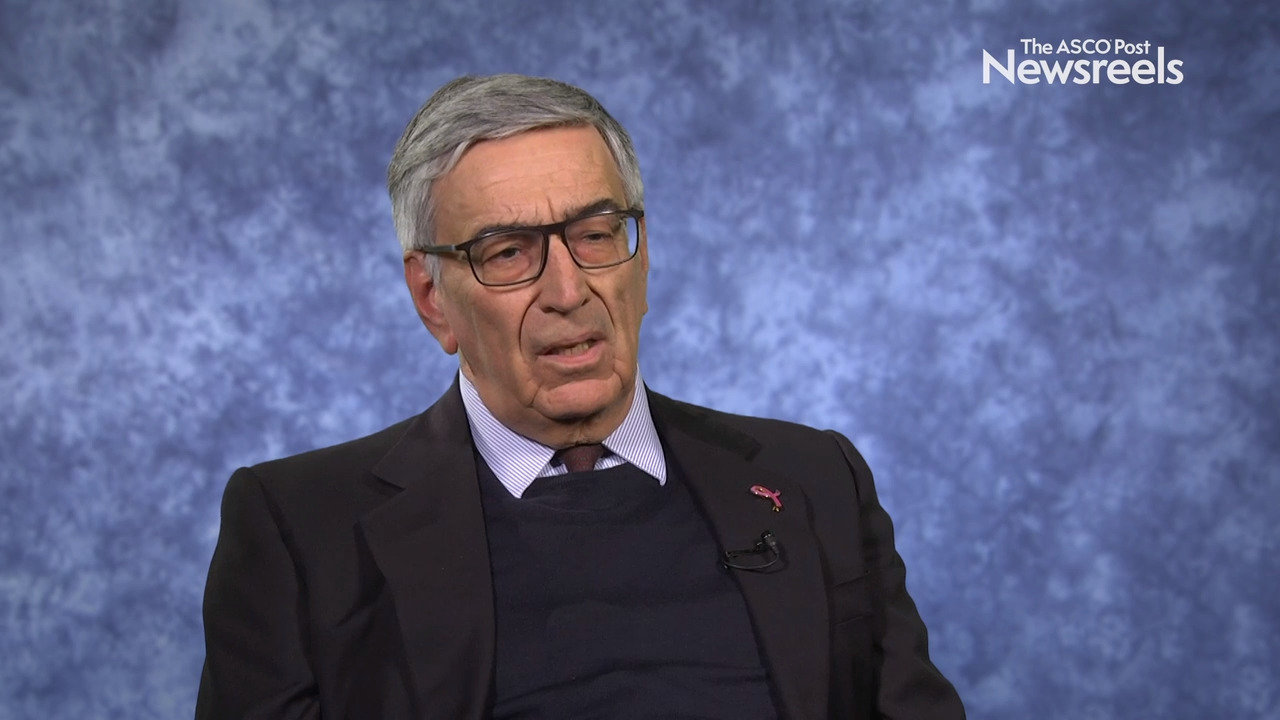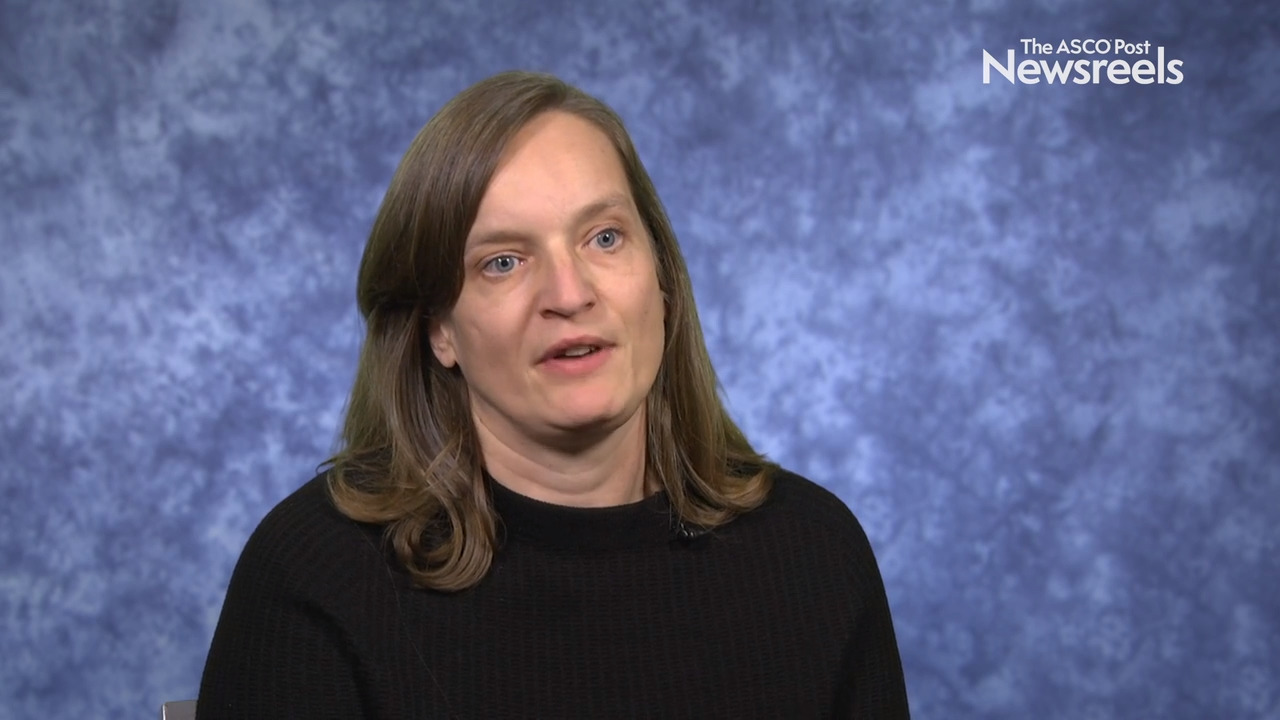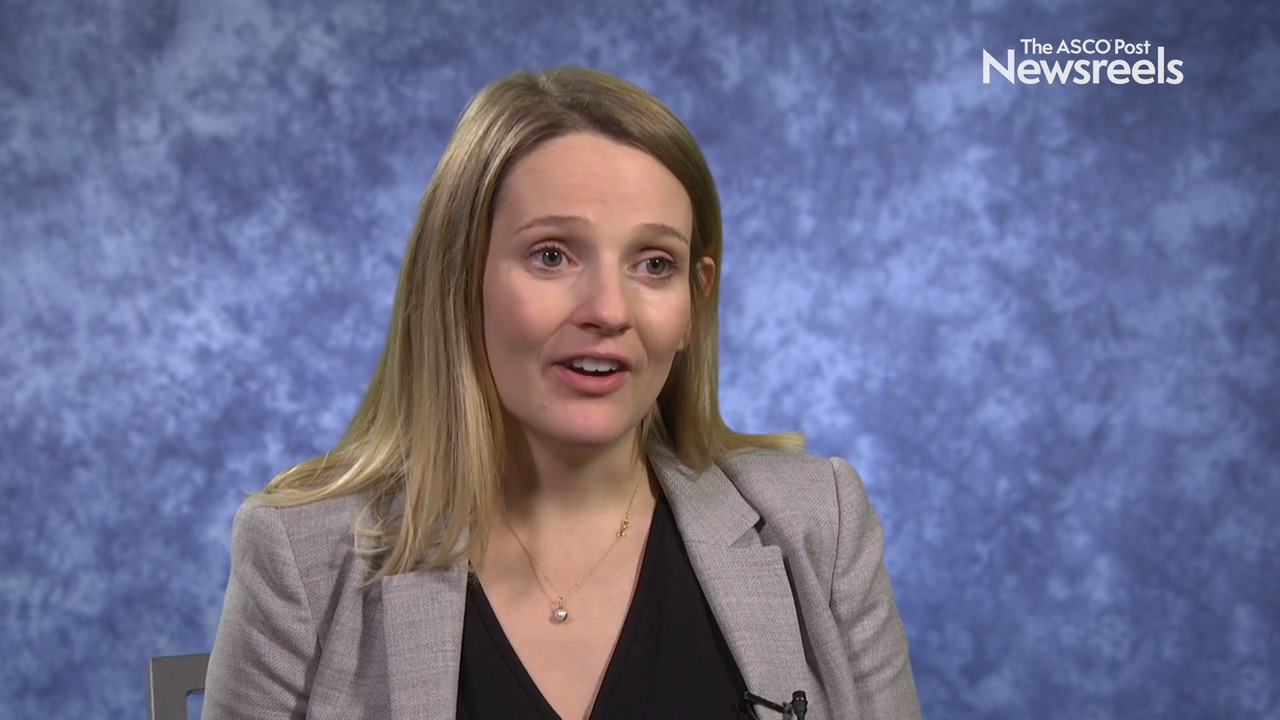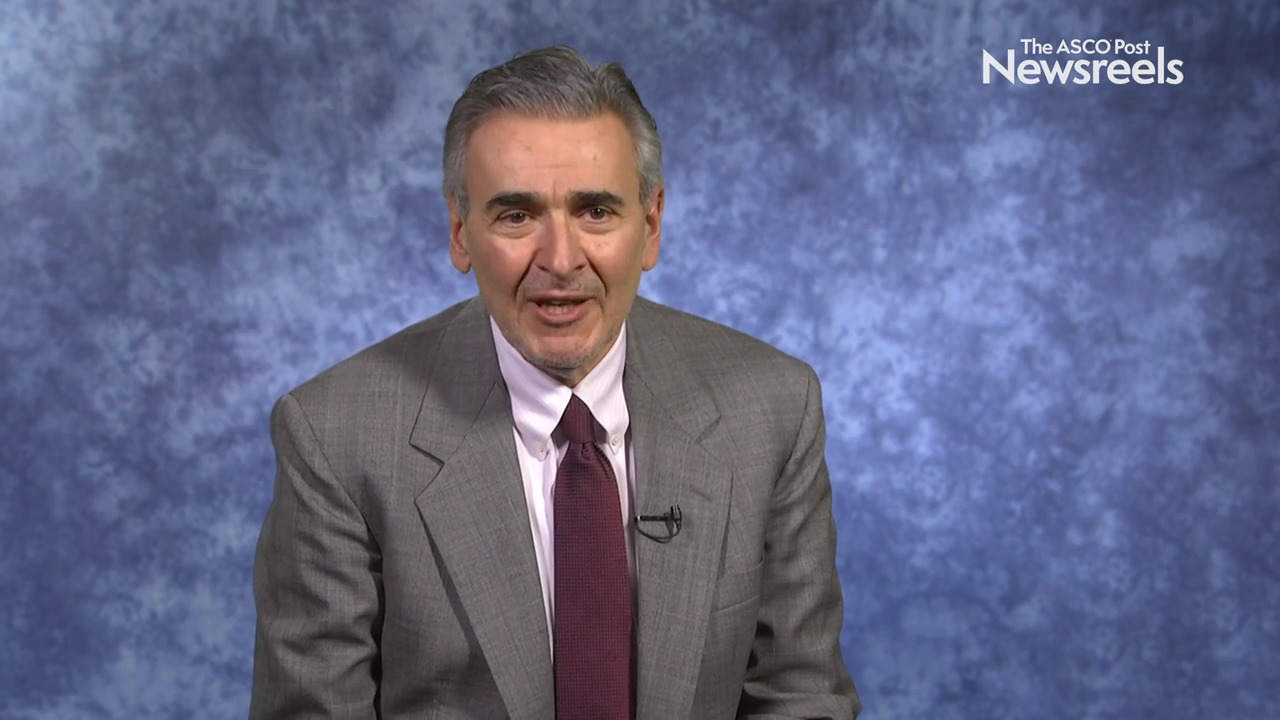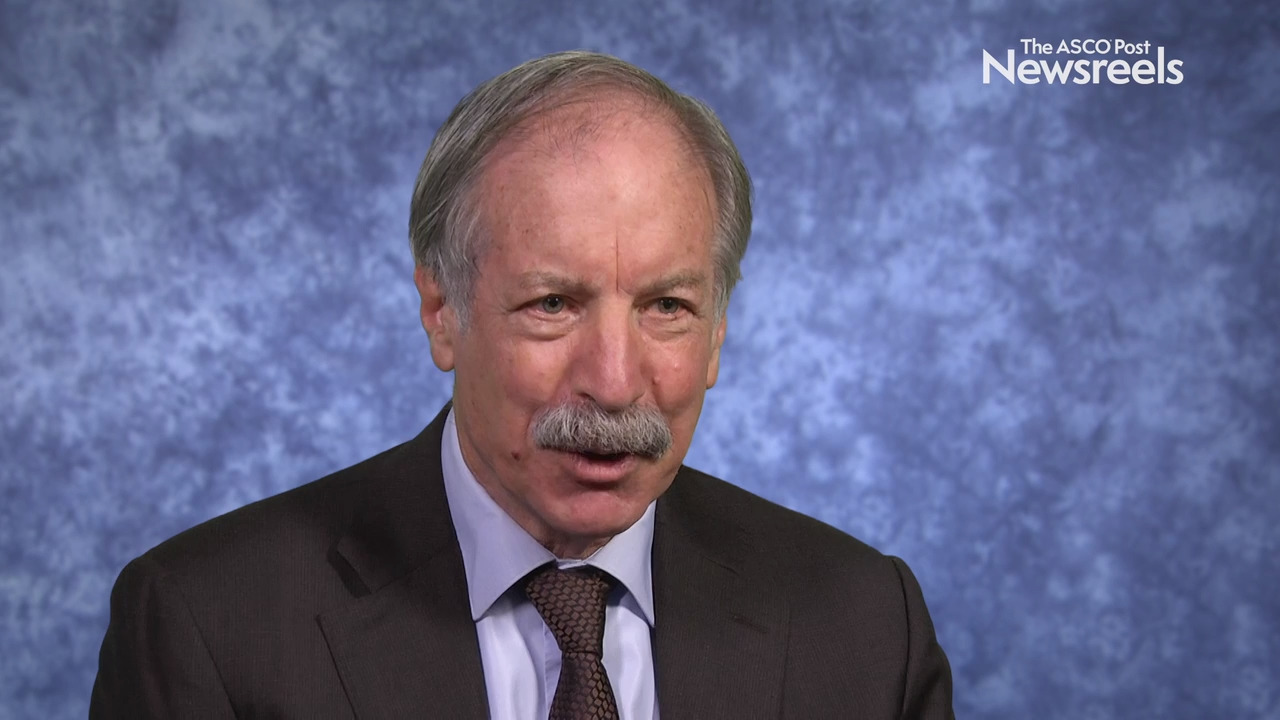Terry P. Mamounas, MD, MPH, on Extending Letrozole Treatment in Hormone Receptor–Positive Breast Cancer
2019 San Antonio Breast Cancer Symposium
Terry P. Mamounas, MD, MPH, of Orlando Health UF Health Cancer Center, discusses 10-year results from NRG Oncology/NSABP B-42, which showed that, for postmenopausal women with hormone receptor–positive breast cancer who have completed previous adjuvant therapy with an aromatase inhibitor or with tamoxifen followed by an aromatase inhibitor, extended treatment with letrozole improved disease-free survival (Abstract GS4-01).
Luca Gianni, MD, of the Fondazione Michelangelo, discusses findings from the NeoTRIP trial on pathologic complete response to neoadjuvant treatment with or without atezolizumab in triple-negative, early high-risk, and locally advanced breast cancer (Abstract GS3-04).
Ivana Sestak, PhD, of Queen Mary University of London and the Centre for Cancer Prevention, discusses study findings that confirm the prognostic ability of the Clinical Treatment Score at 5 years (CTS5) for late distant recurrence, specifically for patients older than 50 years and/or for those deemed to have intermediate- or high-risk hormone receptor–positive, HER2-negative, node-negative breast cancer. The CTS5 is less prognostic in women younger than 50 who received 5 years of endocrine therapy alone (Abstract GS4-03).
Belinda Kingston, MB ChB, of the Institute of Cancer Research London, discusses next-generation sequencing results from the plasmaMATCH trial, including the incidence of gene alterations overall, as well as the associations with clinical and pathologic features that may help direct treatment decisions (Abstract GS3-07).
Joseph Sparano, MD, of the Montefiore Medical Center, discusses three challenges:
- How can gene-expression profiles and other diagnostic tests be used to guide the use of adjuvant systemic therapy?
- Is it time to reappraise active surveillance?
- Are there diagnostic and therapeutic strategies that can identify tumors at highest risk of metastasis, and novel therapies that can block the spread of disease?
Jack Cuzick, PhD, of Queen Mary University of London, discusses the substantially greater benefits of anastrozole as compared with tamoxifen in terms of preventing breast cancer, with no increase in fractures or other reported serious side effects (Abstract GS4-04).
